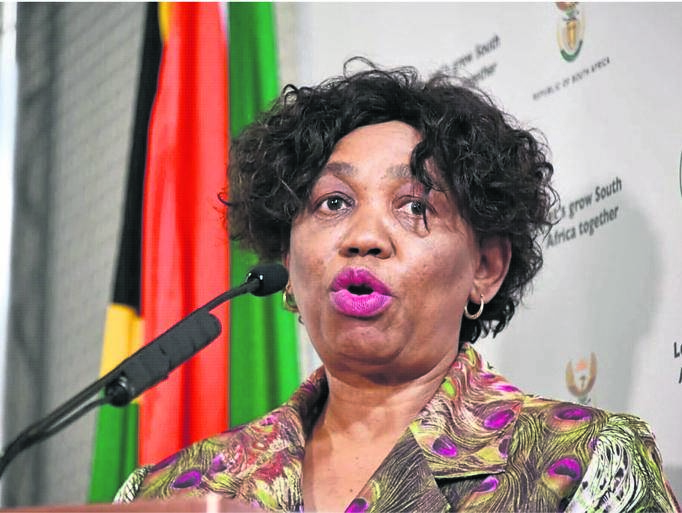


Basic Education Minister, Angie Motshekga.
- Basic Education Minister Angie Motshekga says 2 740 teachers and 1 260 pupils have been infected since schools reopened.
- This, however, represented just 0.01% of pupils and 1% of teachers in SA, she said.
- She added that the infection hotspots in SA mirrored the infections in schools.
More than 2 500 teachers and over 1 200 pupils have contracted Covid-19 since schools reopened, but this represents a small percentage of people in the schooling system, according to Basic Education Minister Angie Motshekga.
On Sunday, the minister said 2 740 teachers, of 440 000 teachers, were infected by the virus.
“This is equivalent to less than 1% of the entire teacher population in our country. In the same period, 1 260 learners were infected by the virus. This implies that 0.01% of our learners were infected by the virus,” she said.
But Motshekga confirmed that some teachers and pupils had died.
“We unfortunately lost the lives of 11 teachers and four non-teaching staff in the Eastern Cape to the virus; as well as three learners, who are reported to have succumbed to Covid-19,” she said during a press briefing.
She added: “The reports show that some of these teachers and learners could not have the opportunity of reporting back to school on school reopening. We convey our deepest condolences to the affected families. May their dear souls rest in eternal peace.”
READ | Back to school for Grade 6s, 11s and some Grade Rs
Motshekga was speaking about the return of Grade R, 6 and 11 pupils to school on Monday as part of the department’s strategy to stagger the return of pupils.
She also said that provinces, who are not ready to accept Grade Rs, have until the end of July to accommodate them. Those who are ready should go ahead from Monday, the minister said.
Western Cape, Eastern Cape, Gauteng
The staggering trend aims to reduce the number of pupils in schools and classrooms as the Covid-19 pandemic begins to peak in SA.
Motshekga said that most of the cases in schools were in line with national infection trends.
“Not surprising, the highest number of infections followed the national trends, with the Western Cape, Eastern Cape and Gauteng having recorded the highest number of infections for both teachers and learners.”
She said the infection rate was worrying.
“Due to the infection rate, it is clear that we need to continue to work together to contain the transmission of the virus. As the basic education sector, we have to play our part together, with all our strategic stakeholders and partners.”
ALSO READ | Grade Rs will not be returning to school in KZN
She said South Africans had to be reminded that schools were “a direct microcosm of societies in which they are located”.
“What we see in our communities is the same phenomenon that is beginning to creep into our schools. Since our Grade 7 and 12 learners returned to school on 8 June, 968 of the 25 762 schools were closed and reopened.”
She said this worked out to 4% of the total number of public and independent schools in SA.
“Even the survey conducted by teacher unions confirms that between 4% and 8% of schools had to close due to infrastructure challenges, or the inability of the schools to fully comply with the Covid-19 protocols.”
Motshekga said schools would not be closed for long periods, even if Covid-19 was detected.
“The average duration for the deep cleaning, decontamination and fumigation of schools, and the preparation of schools for the resumption of teaching and learning, is three days.”

